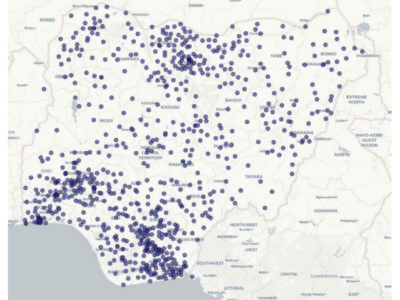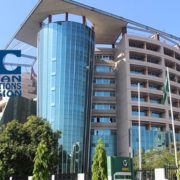By Oluwatobi Opusunju
Public sector information technology (IT) spend has plummeted in the last two years forcing global IT companies like Oracle, Microsoft, Cisco and others to rethink their presence in Nigeria, IT Edge News.NG has learnt. According to recent reports by the International Telecommunication Union (ITU), Nigeria is ranked 15th in ICT spending on the continent.
Nigeria spends paltry 3.1% of her annual budget on ICT. It ranks 142 globally and 15th in Africa. The island nation of Mauritius tops the chart at 72 followed by Sychelles ranking 90 globally according to the ITU report.
Those who should know say this trend has weakened the country’s ICT market in the last two years making Nigeria to lag behind among ICT compliant nations. In a wider sense, because government is the biggest spender in the economy, the large shrink in public spending on ICT has meant lower penetration of ICT across sectors. In the public sector, ICT-enablement of government’s operations has slowed down.
“The economic depression has impacted negatively on the ICT procurement and in the public sector, government has virtually shied away from any major ICT project,” said Lagos based ICT analyst, Banjo Dare.
Apparently, ICT has the least priority in Nigeria for now, a situation industry watchers have described as worrying and clearly negates the desire for economic diversification by the government.
READ: https://itedgenews.africa/2017/09/14/nitda-efcc-firm-public-sector-corruption-procurement/
However, experts like Mr. Sunday Folayan, president, Nigeria internet Registration Association (NiRA) thinks government spending has not necessarily slowed down but a more cautious approach now exists to control ICT spending in the public sector as one of the steps to curtail fictitious ICT projects. Since last year, Folayan has used a web-community based platform to analyse the annual national budget and expose project duplications and exaggerated project costs including those within the ICT space.
Also, since last year, the Economic and Financial Crimes Commission (EFCC) and the National Information Technology Development Agency (NITDA) have firmed up strategies to ensure corrupt free IT procurement processes in the public sector. The belief within government is that ministries, departments and agencies (MDAs) spend money on foreign ICT procurements excessively as an annual ritual to siphon public funds into private tills. The procurement act which requires MDAs to seek IT procurement clearance from the NITDA is now being vigorously executed by the NITDA.
But critics say government’s commitment to ICT is shallow going by the current state of funding and it only shows a deep sense of ignorance on government’s part as to what direction it wants to give ICT in the present dispensation.
“Most global ICT companies with presence here will tell you they have not had an impressive result to justify their continuous stay” the CEO of a Lagos based IT company told IT Edge News. “Their Public or Government Sector departments have posted nothing in the last 24 months and they certainly do not see any silver lining in the skies,” added the CEO.
One insider told IT Edge News some of the global IT companies affected by this trend are already thinking of exiting the country physically so that they could manage their operations fully from their South African offices.





























